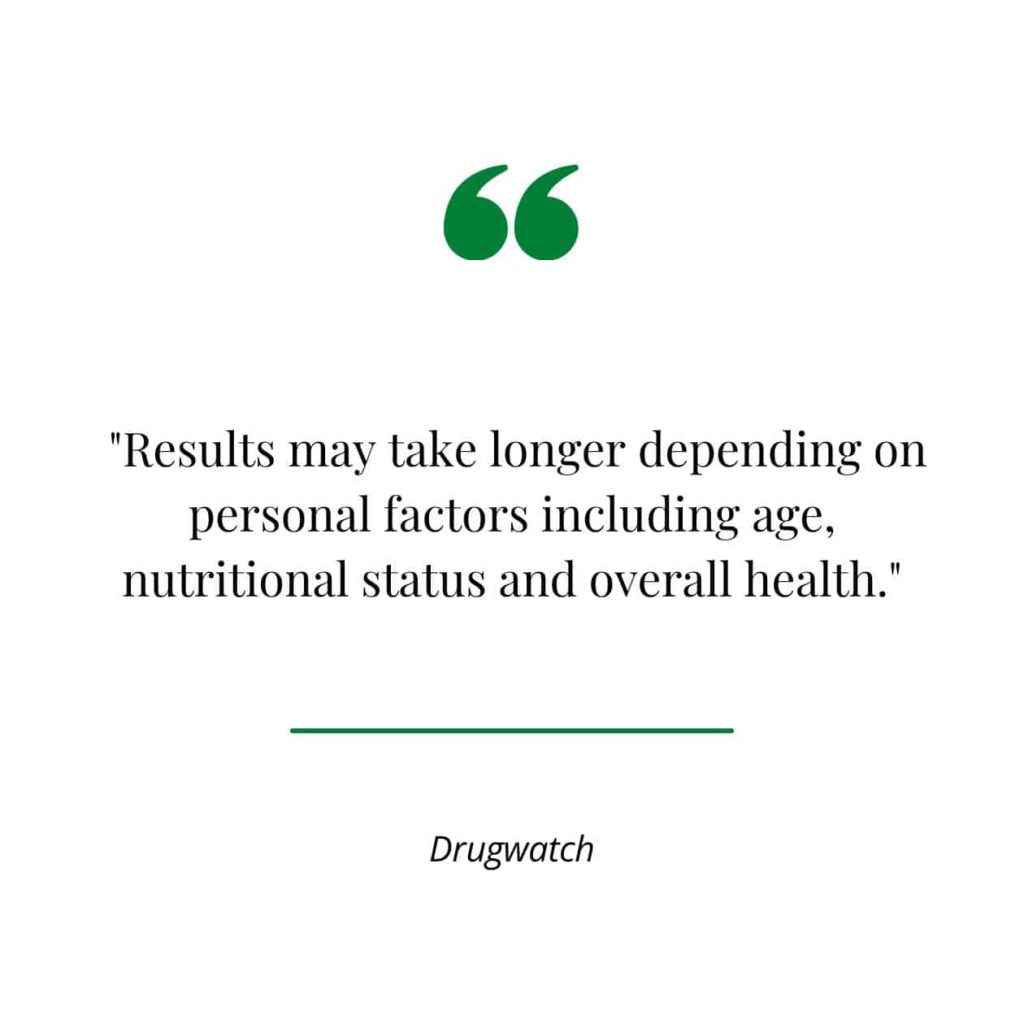How Much Collagen Should I Take A Day? Expert Answers
“This study suggests that the effective amounts of functional collagen peptides (2.5 to 15 g per day) observed in the literature are below the maximum level of collagen that may be incorporated in the standard American diet.”
Dr. Christiana Paul, et al., Significant Amounts of Functional Collagen Peptides Can Be Incorporated in the Diet While Maintaining Indispensable Amino Acid Balance
As we age, it’s only natural that our skin starts to show signs of wear and tear. Fine lines turn into wrinkles, and skin elasticity decreases.
To help keep skin looking its best, many people turn to collagen supplements. Another use of these innovative supplements is to help with digestive issues.
Whether you want to improve your skin or your gut, there are plenty of benefits to supplementing the natural collagen in your body.
But how much collagen should you take a day?
The answer depends on several factors, including your age, lifestyle, diet, and what exactly you’re hoping to achieve with your collagen intake.
This article is going to take a deeper dive into the world of collagen and explore what it is, what it can do for you, and how you can implement these supplements into your lifestyle.
What exactly is collagen?

Collagen is a protein found in the connective tissues of mammals. It’s one of the major proteins found in our systems and is responsible for giving skin its elasticity and strength. As we age, our bodies produce less collagen, which leads to wrinkles and saggy skin.
While you can find collagen in foods like bone broth and red meat, the amount is so small that it’s not enough to have any real impact on your health. This is why people turn to supplements.
Collagen peptides are short chains of amino acids that are easily digested and absorbed by the body. When you take a collagen supplement, these peptides go to work rebuilding and repairing the collagen in your skin, hair, nails, bones, and joints.
These supplements come in a variety of forms. Collagen powders are the most popular, but you can also find capsules, gummies, and even collagen-infused water.
What are the benefits of taking collagen?
There are a number of reasons you might want to start taking collagen supplements. Some people take them for their skin, hair, and nails.
Others use them to relieve joint pain or improve gut health. Here are some of the most well-documented benefits of these supplements:
Skin health

As we age, our skin loses collagen and becomes thinner. This can lead to wrinkles, sagging skin, and a loss of elasticity.
By taking collagen supplements, you can help your body replenish its collagen stores, leading to firmer, younger-looking skin.
Hair health
Collagen is also essential for healthy hair. This protein provides your hair with structure and strength. When collagen levels decrease, you may start to see thinning hair or brittle strands.
Collagen supplements can help improve the health of your hair by boosting collagen production.
Nail health

Strong, healthy nails are another benefit of collagen supplementation. Like hair, nails are also made up of collagen. This protein gives nails their strength and prevents them from breaking and the collagen supplements do the same to help reduce nail brittleness and breakage.
Joint health
If you suffer from joint pain, collagen supplements may be able to help.
Collagen is a major component of cartilage, the tissue that cushions your joints. By taking collagen, you can help reduce inflammation and repair damaged cartilage.
Digestive health

Collagen is also good for your gut. This protein is essential for the health of the lining of your digestive tract.
When collagen levels are low, you may experience digestive issues like leaky gut syndrome or inflammatory bowel disease.
Collagen supplements can help heal and seal the lining of your gut, improving overall digestive health.
How much collagen should I take a day?
There are different types of collagen supplements on the market, and each one has a different recommended dosage.
Let’s take a look at some of the different types of collagen powders and peptides and what you can use these supplements for:
Hydrolyzed Collagen

Hydrolyzed collagen peptides are the most bioavailable form of collagen. This means that they’re easily absorbed by the body and put to work right away.
Hydrolyzed collagen is often used to improve skin health, as it helps to reduce wrinkles, fine lines, and dryness. It can also help to improve joint health by reducing inflammation and pain.
Undenatured Collagen
Undenatured collagen is also known as native collagen. This type of collagen is less processed than hydrolyzed collagen and has a higher molecular weight.
Native collagen is often used to improve gut health, as it helps to heal the lining of the gut and reduce inflammation. It can also help to improve joint health and increase bone density.
For Your Skin

For the best results, collagen should be taken internally and applied topically. This means taking a supplement and using a collagen-based skincare product.
When taken internally, collagen can help to improve the health of your skin from the inside out. It can help to reduce wrinkles, fine lines, dryness, and redness.
Generally speaking, about 2.5 grams of collagen supplements daily can show improvements in your skin.
For Stronger Bones
As we age, our bones start to lose density and become weaker. This can lead to osteoporosis and a higher risk of fractures.
Collagen can help increase bone density and reduce the risk of fractures. Upping your collagen dosage to about 5 grams per day has proven the best results for bone density.
For Muscular Health

Collagen can also help to improve muscular health. It can help to reduce inflammation, pain, and cramping. When it comes to the muscle, many people take up to 15 grams of collagen supplements daily.
Along the same lines, joints are constantly under stress, which can lead to inflammation and pain. Collagen can help to reduce inflammation and pain in the joints.
So really, your best bet is to check the packaging and take the recommended dosage. If you’re still unsure, you can speak with a doctor, but collagen supplements are quite safe and you don’t need to worry about going overboard on your supplements.
When should I take the collagen?
You may be thinking, “how do I know when it’s time to start taking collagen supplements?” Here are a few key signs that it may be time to start supplementing:
- You’re noticing wrinkles or fine lines
- Your skin is dry or lackluster
- You have joint pain or stiffness
- You’re recovering from an injury
- You have gut issues
As you can see, there are many reasons why you might want to start taking collagen supplements. If you’re noticing any of the above signs, it may be time to give collagen a try.
Once you start taking collagen, you can take the supplement with or without food. If you have a sensitive stomach, it’s best to take it with food.
Keep in mind that consistency is key; you’ll get the best results if you take your supplements on a daily basis.
How long does it take collagen to work?

The effects of collagen are not immediate. It can take several weeks or months to see the full effects of collagen.
You should start to see results within 4-8 weeks of taking collagen. For the best results, collagen should be taken for at least 3-6 months.
How long does it take to see results?
Everyone and every body responds to medications and natural supplements in a different way.
Some people may see results within 4-8 weeks, while others may not see results for several months. The key is to be consistent with your collagen supplements and give it time to work.
If you don’t see results after 3-6 months, you can try increasing your dosage or adding a collagen booster to your routine.
You can also speak with a doctor or nutritionist to see if there are any other underlying issues that could be causing your lack of results.
How to Increase Your Collagen Intake

There are a few different ways that you can increase your collagen intake. The first way is to take a supplement. Collagen supplements are available in powder, capsule, and liquid forms.
You can also get collagen from food sources. Good sources of collagen include bone broth, chicken, fish, and eggs. You can also find collagen in some cosmetics and skincare products.
The best way to increase your collagen intake is to take a supplement and eat collagen-rich foods. This will help to ensure that you’re getting enough collagen to see the full benefits.
How much collagen is too much?
There are very few negative side effects to taking a natural supplement like collagen. Upping the dosage past the recommended amount won’t give you results quicker or prove stronger, long term effects.
You may experience some stomach upset or digestive issues if you take too much collagen at once, so it’s best to start slow and increase your dosage as needed. If you have any concerns, speak with a doctor before starting a supplement regimen.
Are collagen supplements good for you?

Yes, collagen supplements are good for you! Collagen is a safe and effective supplement with a wide range of health benefits.
Some of the benefits of taking collagen include:
- Improved gut health
- Improved joint health
- Increased bone density
- Reduced inflammation
- Improved skin health
If you’re considering taking a collagen supplement, it’s important to talk to your doctor first. They can help you determine if collagen is right for you and recommend a dosage.
The Bottom Line
Collagen is a safe and effective supplement with a wide range of health benefits. The recommended dosage for collagen is anywhere from 2.5 to 15 grams per day. Collagen should be taken for at least 3-6 months for the best results.
If you’re considering taking a collagen supplement or getting started on your journey to bettering your body, check out our clean-sourced collagen products today!
Organixx Clean Sourced Collagens blend contains five types of collagen from four sources. What’s more, it’s combined with targeted nutrients such as zinc, vitamin C, and vitamin B6 which specifically enhance the bioavailability and potency of collagen. Clean Sourced Collagens is formulated from the ground up to enhance and support your body’s natural ability to heal and rebuild itself from the INSIDE out.






Comments